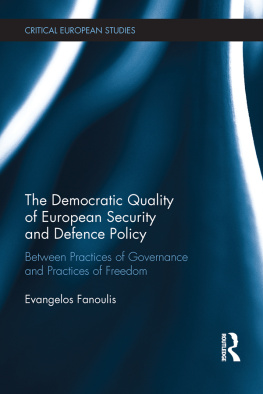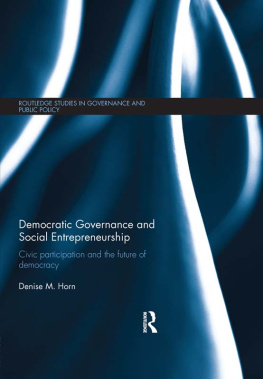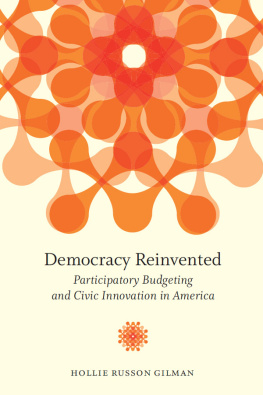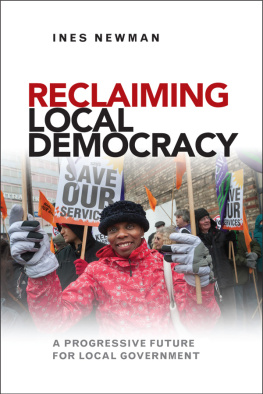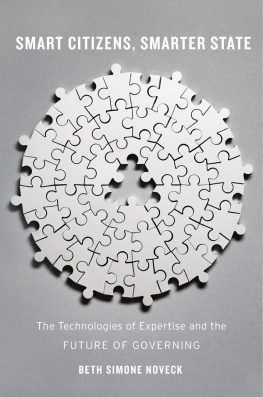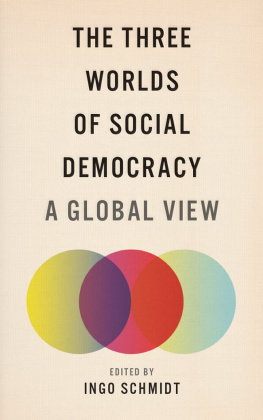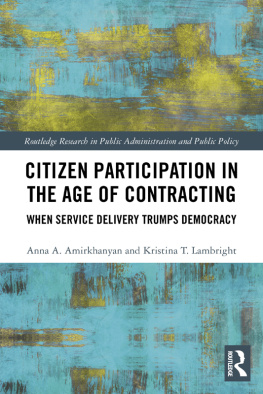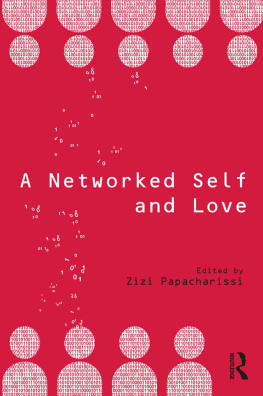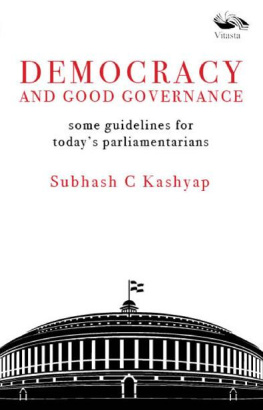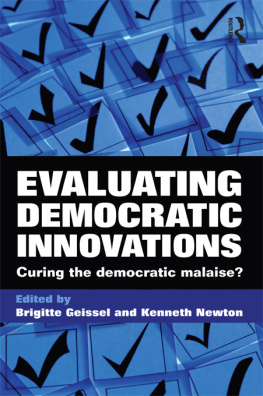After Democracy

Yale University Press
New Haven & London
Copyright 2021 by Zizi Papacharissi.
All rights reserved.
This book may not be reproduced, in whole or in part, including illustrations, in any form (beyond that copying permitted by Sections 107 and 108 of the U.S. Copyright Law and except by reviewers for the public press), without written permission from the publishers.
Yale University Press books may be purchased in quantity for educational, business, or promotional use. For information, please e-mail (U.K. office).
Set in Janson type by IDS Infotech Ltd.
Printed in the United States of America.
ISBN 978-0-300-24596-7 (alk. paper)
Library of Congress Control Number: 2020939832
A catalogue record for this book is available from the British Library.
This paper meets the requirements of ANSI/NISO Z39.48-1992 (Permanence of Paper).
10 9 8 7 6 5 4 3 2 1
To strangers and citizens of the world,
my conversational companions
Contents
Preface
Think. Upside down. High and low brow.
Forget what you know.
Rethink what you believe.
Listen, to learn.
Reimagine.
Democracy has long been considered an ideal state of governance. What if its not? Perhaps it is not the end goal but, rather, the transition stage to something better. We have lent our cheer and support and sacrificed lives for revolutions meant to place democracy where it does not exist. But change is gradual. Revolutions are long. They have to be long, so as to attain meaning. And revolutions, noble as they may be, often lead away from and not toward democracy. What if democracy is not an ideal state or an end goal? What if there is something better out there, and technology can help us uncover a long-hidden path to it?
We have been through many iterations of democracy. Through each one, we thought we had it right. When we privileged property owners with the right to vote, when we excluded women from the voting process, and when we kept people from voting because of the color of their skin, we naively claimed what we had was a democracy. We have made much progress in advancing equality in our governance systems, but we have not reached perfection and perhaps never will. Bear in mind that in our collective past, we have called many governments democratic that, in retrospect, were not. Democracy has always felt within reach and yet forever out of sight.
Democracy is not the final stop on our civic journey. Technology can push us further. This is the premise of this book: to think about and beyond democracy, to imagine a different role in all of this for technology.
There are many ways to go about this. My goal was to trace desire lines that would organically take us to what might follow democracy. So I decided to travel the world and strike up conversations with strangers. I am a social scientist who has been studying democracy and technology for more than two decades. Using a variety of research methods, I have listened, learned, and communicated my findings on how technology can help us tell stories that unite us, identify us, or potentially further divide us. For this project, I was asking people to imagine something that does not exist. People were to think about a future state of democracy and how to get there through technology. These are not things that we think about every day, and these are not questions that can be easily answered when posed out of the blue. So I thought that if I engaged people in casual conversation about democracy, citizenship, and what the future might hold, I might be able to better jump-start this process. So I mapped out an ambitious plan that included one hundred countries that I wanted to visit. I wrote up my intentions and obtained approval for my process from our institutional review board at the University of Illinois at Chicago. As I was setting up my travel plans, one of the reviewers for this book called my .
Have you ever found yourself engrossed in a conversation about civics with a cab driver? Shared a couple of words of civic wisdom that left you utterly fulfilled with the person who checked you out at the grocery store? Engaged in random politics banter with a fellow passenger on a train or a plane? That was the set of circumstances I was seeking to re-create as I approached or was introduced to strangers around the world. Typically, following a casual conversation, they would ask me what I do, and I would say that I study social media and politics. This never fails to spark follow-up questions, so I would explain what I was working on. I worked with friends and colleagues, used my networks, and asked all, including those I had already interviewed, to introduce me to other folks who might be interested in chatting with me. I looked at places where I would encounter people different from me, so I worked outside academia. I learned to glean political ideology through the initial conversation so that I could diversify my sample. I moved in circles different from those my everyday routines would take me into and approached people, established connections, and asked for introductions to others. It was a randomized yet strategic path, designed to take me out of the familiar. Once my conversational companions gave me permission to interview them, I asked them all the same three questions and never deviated from my pattern. The questions were, What is democracy? What is citizenship? What might make democracy better?
I ran one hundred interviews. Sometimes I asked people who looked different from me to run them, and I trained them for it, so as to avoid bias. My friends, colleagues, and students helped.
I speak German, Greek, and some Spanish, so I conducted most interviews on my own and used translators on a few occasions. As I wrapped up my interviews, I asked my conversational companions how they wanted to be identified. Some chose a name, which I noted. Most insisted on using their own name. A few wanted to be anonymous. As I debriefed them and shared my contact information so that we could stay in touch and so that I might share the book with them, they all, without fail, asked, What did other people say? Similar or different things from what I said? They said the same things, I would respond, but they used different words. All were surprised. I interviewed people in refugee centers, and my respondents from Libya, Afghanistan, Pakistan, Syria, and Egypt, to name a few, were intrigued that their responses on the meaning of democracy and citizenship were so close to responses that people in the United Kingdom, Germany, and the United States provided. My conversational companions in the United Kingdom, Canada, Greece, Mexico, and Brazil, to name a few more, were struck that their responses were conceptually close to what those I interviewed in China and Russia told me. So was I.
I thought I might find traces of a great global disconnect when it comes to how we think about democracy and citizenship. I figured that for sure there would be grand differences across countries in what people thought was wrong with democracy. I was hoping to use their thoughts on what was wrong to map out what right might look like. The goal was, after all, to sketch out what we aspire toward, what we think of when we imagine an ideal democracy, or if its not a democracy, what might lie after it. There is no massive disconnect. We may, in fact, want to think about whether the impression that there is a disconnect could be a manufactured one.
Sure, people use different words to communicate their thoughts, in different languages, and language conveys nuance. For example, the German word for citizenship is Staatsbrgerschaft
Next page


